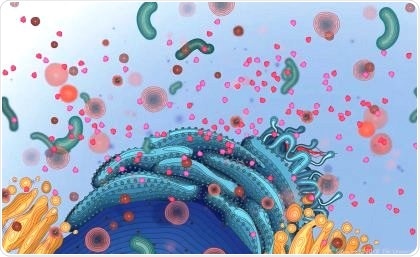Aug 31 2018
A new understanding of one of the body’s immune defense mechanisms could lead to the development of novel therapeutic targets for conditions such as cancer and autoimmune diseases, a University of Queensland study has revealed.

UQ’s Institute for Molecular Bioscience researcher Associate Professor Kate Schroder, along with Dr Kaiwen Chen, Dr Mercedes Monteleone and Dr Dave Boucher, uncovered a new line of defense deployed by the immune system against bacteria.
“Bacteria are often quickly killed by white blood cells called neutrophils, which are the body’s initial line of defense against infection,” Dr Schroder said.
“We discovered an unexpected secondary line of defense that is deployed against bacteria that have evaded the initial immune response and invaded the neutrophil itself.
“This new immune defense pathway is mediated by an ‘executioner’ protein called Gasdermin D.
“This protein drives an unusual form of ‘cellular suicide’, where the cell expels structures called neutrophil extracellular traps (NETs) to catch the infection and prevent it from spreading.”
NETs are networks of DNA fibers embedded with antimicrobial proteins that immobilize and kill bacteria, providing a secondary line of resistance.
While researchers already knew that neutrophil cell death can be associated with NETs, this discovery revealed an entirely new pathway using Gasdermin D and the inflammasome – a molecular machine that senses and responds to infection.
Dr Schroder said while NETs had a protective role in fighting pathogens, they could also drive pathology in some autoimmune and inflammatory diseases, as well as cancers.
“It’s important we understand the basic cellular mechanisms of inflammation before we develop treatments for various immune-related diseases,” Dr Schroder said.
“Understanding how the Gasdermin D drives neutrophil death and the expulsion of NETs could lead to new therapeutic targets for immune-related diseases, which could in turn lead to more effective treatments and improve quality of life for affected individuals.”
Noncanonical inflammasomes: signalling, pyroptosis and NETosis in host defence